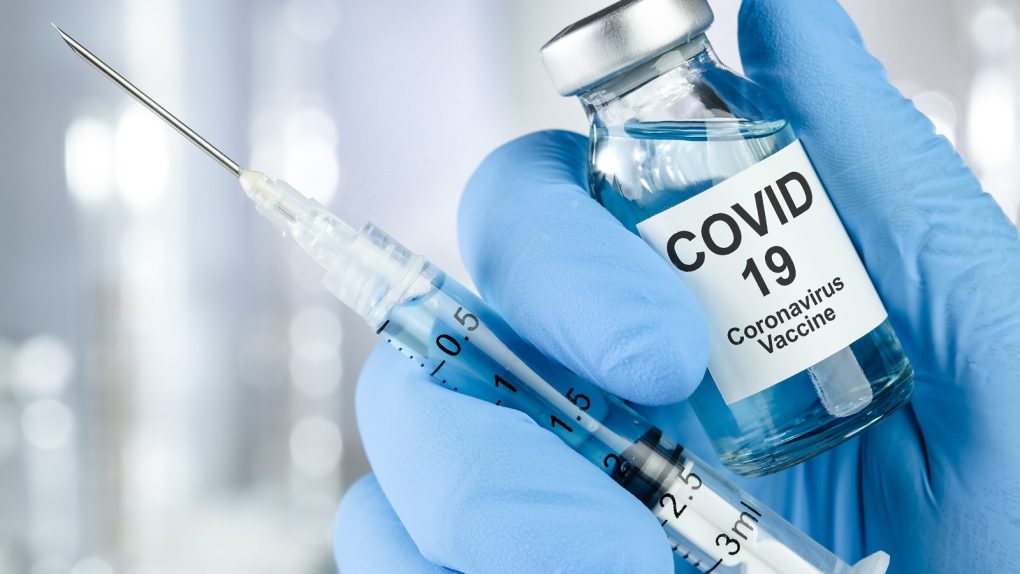- One of the most promising novel coronavirus vaccine candidates might complete the Phase 3 stage of clinical trials as soon as next month, and the companies behind it will seek immediate FDA approval if the drug is deemed safe and effective.
- It’s the BNT162b2 candidate from Pfizer and BioNTech that’s currently in Phase 3 trials in several countries around the world.
- The two companies released new data from their preclinical trials showing that the experimental drug was able to stop COVID-19 infections in lab settings.
AstraZeneca just confirmed that it had to temporarily pause its Phase 3 trial of the promising Oxford coronavirus vaccine, after a volunteer in Great Britain developed a possible adverse reaction that needs further investigation. This is normal and the trial might resume within a few days, but the episode does remind us that nothing is guaranteed when it comes to vaccination programs for the novel virus. Having a drug advance to the final stage of clinical testing is not enough. Whether it’s a vaccine or a different form of therapy, the drug has to prove that it’s effective and safe. Failure is always a possibility, and we have to be prepared to accept negative outcomes. But Wednesday brings us more good news about a different frontrunner in the COVID-19 vaccine race, one that might be ready to seek emergency use authorization as soon as next month.
Pfizer and BioNTech announced results from preclinical trials involving their leading mRNA vaccine candidate. The two companies already shared results for the previous phases of human trials, including data for older volunteers who had received the drugs. Those studies indicated that humans responded well to the vaccine, showing minimal adverse effects while developing the expected immune response. But the clinical trials have yet to explain how effective the vaccines are. It’s not enough for volunteers to generate neutralizing antibodies and T cell responses. We need to know the vaccine can prevent the infection, or that it can significantly reduce the severity of the illness.
Preclinical trials involve animal testing, and researchers have better answers when it comes to this type of research. That’s because the animals are intentionally exposed to the virus after vaccination to see if the immune response is effective. Pfizer and BioNtech have good news on that front, saying that the BNT162b2 immunization worked on rhesus macaques monkeys and mice.
The monkeys were given two shots of BNT162b2 three weeks apart, with a control group getting a saline solution instead. The researchers looked at two dosages for the drug and found that both of them resulted in the development of neutralizing antibodies that lasted for at least 56 days. The higher the dose, the higher the neutralizing antibody titers were, and the results were better than convalescent humans who survived COVID-19 and developed antibodies for the virus.
The animals also produced the desired T cell responses that suggest the vaccine is safe and has an anti-viral effect.
The macaques were challenged with a very high dose of SARS-CoV-2 on day 55 after immunization, via the nose and the lungs. The researchers found that the vaccine prevented the virus from infecting lung cells in immunized animals compared to the control group. The virus did infect nose cells, a response we saw from other preclinical trials, but the viral RNA was not detectable within three days after the infection. The vaccine prevented 100% of lung infections and cleared nasal infections cleared in 100% of the challenged monkeys.
The Pfizer and BioNtech scientists also inoculated mice with the same mRNA vaccine, albeit at significantly lower doses. The vaccine generated B and T cell responses as well as pseudovirus neutralizing activity.
These preclinical trials preceded the current human trials, as the companies noted in their press release, with the research already available in pre-print form at this link. The study is being peer-reviewed and considered for publication.
Phase 3 of the trial has already enrolled more than 25,000 volunteers aged 18-85 in the US, Argentina, and Brazil, with more participants to be inoculated in Germany, Turkey, and South Africa. The companies said that “Assuming clinical success, Pfizer and BioNTech are on track to seek regulatory review for BNT162b2 as early as October 2020.” Once regulatory approval is obtained, Pfizer and BioNTech want to manufacture up to 100 million doses by the end of the year, and as many as 1.3 billion doses by the end of 2021.
“It has an excellent profile, and I consider this vaccine … near perfect, and which has a near perfect profile,” BioNTech CEO and co-founder Ugur Sahin told CNN. He added that the vaccine could be ready for regulatory approval by the middle of October or early November.
The US government already inked a $1.95 billion agreement with Pfizer for 100 million doses and an option for an additional 500 million doses. The companies also announced on Wednesday that they’ve inked a deal with the European Union to supply 200 million doses of the vaccine and an option for another 100 million, with deliveries to start at the end of 2020.
Pfizer and BioNtech have both signed the pledge to science earlier this week, together with other leading COVID-19 vaccine developers.








